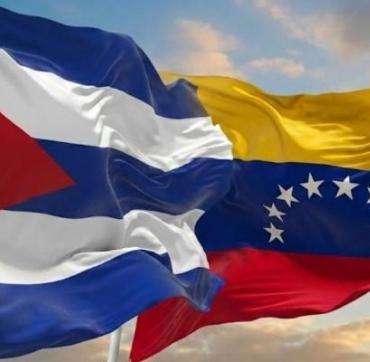Neighborhood Democracy
especiales

He got such a small, skinny piece of paper, a strip of recycled paper. He did not even receive it, someone left it hanging, squeezed into his house fence, next to the door lock. Almost illegible handwriting ... but yes, a summons as concise as it can only be a love note. “Friday 19th, 8 pm. Delegate Assembly.” He pocketed it, where his fingers should touch it every time he wanted to get his keys. Not to forget —he thought— and smiled at a skinny dog passing by.
Friday finally came in. A full moon, surrounded by clouds, which did not allow to appreciate its roundness, it was perhaps a square moon, but its bluish-whitish light, hidden in the fog of this night of a Cuban novel, was enough to walk slowly down the street, the dark street full of holes, forgetfulness, complaints and insulted shoes. He had not forgotten it, the piece of paper in the pocket was already a heap of nothing embedded in a bunch of keys.
Just a few steps away, a powerful light bulb, tormenting his eyes, in the usual house, where neighborhoods meetings take place. A few seconds to adapt his sight and discover some familiar faces, others imagined, in the shadows. Face masks that put distance into the eyes and the contagions caused by this modern pandemic, which strikes like all the old pandemics of history books and period films, in the 21st century.
The rituals begin, over there the Cuban flag and coat of arms. They are barely seen. They sing the Bayamo anthem in a choir like a village church, they are out of tune. Some set the tone with bigger voices, "to the fight, run!" Others just whisper that to die for the homeland is to live.
“We have not met in two years,” he muses. The survivors are present. He hardly remembered the delegate anymore. He is a young man who knows a lot, with a slow voice, like whispering (someone tells him that he hears nothing), he introduces himself and explains that he is also the principal of a nearby school, but today he is devoted to them, the voters, to be held accountable about his work these months of long waits and accumulated problems.
And brings his already written report, short, sincere...The little that was done, how much it remains to be done and the usual subjects: lights that do not illuminate, water leakages, and a breath of hope: “in the nearby neighborhood, almost everything has already been solved. And there will soon be a budget for us, so that a certain company may resume its repairing work…”
In the dark, he has noticed some faces welcoming the positive news, while others seem to say: "seeing is believing."
When it seems that the meeting is going to turn boring, the delegate raises his voice a little and speaks of "the moment we are living in," of the vaccination for all with huge efforts, of the country enduring the U.S. blockade and without tourism; of the marketplace where people buy and sell agricultural products, which was repaired and now looks brand new, and of the plans to also recover the market for regulated items. He introduces the new manager, who waves his arm up, but he is also part of the gloom.
"You have the floor," says the delegate at last, and there is silence at first. No words —he mocks to himself.
But his neighbors break the ice little by little. A lady, a humble woman, states with pain that she can no longer handle the queues of the nearby stores, not because the products are missing, she knows...but she actually complaints about the people who are responsible for organizing such queues. More heads move up and down, over and over again...
This is heating up —he thinks. But today is not the day he must talk. He has already done it many times. What if they soap opera is broadcasted earlier?
Someone complains about the poor condition of the garbage cans in the corner and heads this time do not move...Another neighbor suggests the delegate to move the report of his management to the meeting minute, a "copy and paste", everything that was pending solution, for the record and not to forget. A woman writes down every suggestion, complaint. "Introduce yourselves, name and surname, please."
Other complaints are voiced out, some even without logic, but –well— it is the right of everyone to say what they think or what they are overwhelmed by, to say it clearly to the person for whom the majority of the neighborhood voted to represent their interests.
Someone from the audience calls on the carpet: the delegate is not a magician nor is the government a cow that feeds us all until it dries up. There are things we can do together. If this same delegate and the neighborhood organizations organize us —others have done the same in the city and still do— why should we wait for a brigade of builders? If they bring the materials, we can repair the market together, with volunteer works and the consequent piece of advice. If someone destroys the garbage cans in the corner, in front of our eyes, and the next day another individual sells us ice cream in plastic pots made of the same plastic...
Accountability got pretty intense in the end. It is the delegate who now nods his head and seems to be aware of the many things to come. "Every Wednesday afternoon I will be in the usual place, but whoever wants, whoever has a new complaint or concern, knock on my door any given day.”
The return gets always shorter. The dilated pupils allow the bumps to be seen better. The moon is now reflected in the water after the morning rain. Our democracy is not so bad -—he muses.
Translated by Sergio A. Paneque Díaz / CubaSí Translation Staff














Add new comment